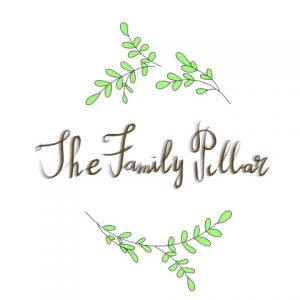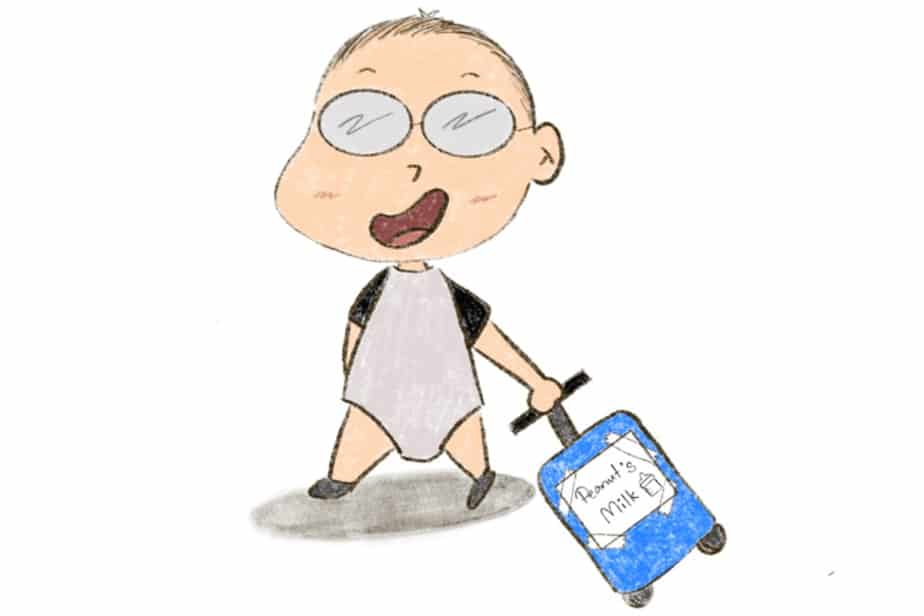When I was first flying with my baby, we wondered if we can bring his breast milk onto the plane, this is a serious question. It’s his food, we also don’t want to have to throw the milk away! I had to do proper research to make sure we’re covered.
So, can I bring breast milk on the plane? The rules for bringing breast milk on the plane are different for each country. Some countries have clear rules, some have vague rules, and some don’t have any written rules. Most countries allow you to bring breast milk on the plane in liquid form, while some countries do not allow frozen breast milk on the plane.
I’ve made a table for a number of countries in this article for your quick reference. Following that is more info for specific countries with links to the source of information to help you out. The sources are from an official airport or government website, or as close to having authority as possible. I recommend you print out the official rules so that you can show it to the screening officer because sometimes, they may not be familiar with the rules.
| Country | Breast Milk | Ice Packs / Gels |
|---|---|---|
| America | Yes, in reasonable quantities. | Yes. |
| Australia | Yes, in quantities no greater than 10 liters or 10 kilograms. | Unclear, I suggest using small ice packs in 100ml or less. |
| Canada | Yes. You also need to present it to the screening officer for inspection. | Yes. |
| France | Yes, You must also place the milk in a resealable transparent plastic bag and present it to the security officer for inspection. | Unclear, I suggest using small ice packs in 100ml or less. |
| Hong Kong | Yes, in reasonable quantities. | Unclear, I suggest using small ice packs in 100ml or less. |
| Japan | Yes, but your baby must go through the screening process with you. | Unclear, I suggest using small ice packs in 100ml or less. |
| Malaysia | Unclear, though in AirAsia's FAQ a sufficient amount of infant formula is allowed. | Unclear, I suggest using small ice packs in 100ml or less. |
| Singapore | Yes, but your baby must be traveling with you. | Yes, according to Singapore Airline's FAQ. |
| Thailand | Yes, in reasonable quantities. | Unclear, I suggest using small ice packs in 100ml or less. |
| United Kingdom | Yes, but frozen breast milk is not allowed. | Yes. |
This post talks about bringing breast milk using the carry-on luggage, and if you’re not sure you can bring them on, call your airline to clarify or check them in. Breast milk can be stored in any quantities and in any form and still be allowed on the plane by placing it in your check-in luggage.
America – TSA Rules
The Transportation Security Administration (TSA)’s official website states that formula, breast milk, and juice can be brought on in reasonable quantities, but you have to inform the officer beforehand that you are bringing it, and you will have to remove them to be screened separately from the rest of your belongings. Ice packs, freezer packs, frozen gel packs, and other stuff to cool the milk are also allowed. If they are partially frozen or slushy, they still have to be screened separately.
Australia – Australian Border Force Rules
The Australian Border Force states that breast milk is permitted for the personal use of infants under the care of the person wishing to import the breast milk in quantities no greater than 10 liters or 10 kilograms. I cannot find any statement that says if ice packs are allowed, so my advice is to use small ice packs (including in gel form) in 100ml or less.
Canada – Canadian Air Transport Security Authority Rules
The Canadian Air Transport Security Authority’s website states that you are permitted to bring breast milk in quantities greater than 100ml, but you do have to present it to the screening officer for inspection. Gel or ice packs are also permitted.
France – Paris Aeroport Recommendation
The Paris Aeroport website states that all medications and food that your baby needs for the trip can be taken into the cabin, without any restrictions or need to show a prescription. You must still place them in a resealable transparent plastic bag and present them to the security officers when going through screening. Something to note, officers may request to taste the food, this may include breast milk. Very odd, maybe they won’t request to taste the breast milk, but you never know, just be prepared.
Hong Kong – HK International Airport FAQ
The FAQ of Hong Kong Airport states in Q16 that baby milk/juice/food in liquid, aerosol or gel form is exempted from the 100ml requirement and there is no specific limitation on the amount that can be brought on board, you are allowed to take a sufficient amount for the flight. Still, it is recommended that amounts under 100ml be placed in a one-liter plastic bag, with other liquids. If the container is larger than 100ml, it should be presented separately to security for x-ray inspection. Your baby must be with you when passing through security screening though, make sure of that.
Japan – Narita Airport FAQ
The FAQ of Narita Airport states in Q15 that restrictions on quantities of liquids do not apply to baby formula or baby food. If your baby is passing through screening with you, then his food will be exempt from restrictions.
If he is not going through the screening area with you, then all restrictions of liquids will apply, and you must pack the breast milk according to regulations (in containers not greater than 100ml, and fit into a transparent re-sealable plastic bag with a capacity of not more than 1 liter) or it will be confiscated. Take note, traveling with him on the same flight is not enough here, you need to go through the screening area with your baby for the milk to be exempted.
Malaysia – AirAsia FAQ
There’s not much information here, the most I could find was an FAQ from AirAsia. The FAQ states that a sufficient amount of infant formula or food is allowed, but is subject to the airport regulations. I couldn’t find any information from Malaysia Airport Berhad’s website but read that many moms had no issues carrying them on board. Because of the lack of written rules, many things may be subjected to the officer on duty, and I would recommend you just to take what you need and leave the rest in the check-in luggage.
For domestic flights, breast milk and other liquids can be safely brought on. The liquid restriction applies to international flights only so there won’t even be a baggage check, no scanning whatsoever. While there is no information online, I can confirm this as I have traveled back and forth to Sabah and Sarawak from the peninsular multiple times, and no checks were made.
Singapore – Changi Airport Guide, Singapore Airlines FAQ
The special assistance guide from Changi Airport states that if your baby is traveling with you, you may bring expressed breast milk onto the plane. If he/she is not traveling with you though, you need to store the breast milk into containers not exceeding 100ml and the containers must fit comfortably in a one-liter resealable plastic bag.
Singapore Airlines’ FAQ also states that if you’re departing from Singapore with your infant, you can bring as much breast milk as you need to nurse your infant for the entire journey.
They also have a contradicting statement that if you’re traveling without your infant, you can bring up to 1,000ml of liquids, aerosols, and gels, INCLUDING breast milk. The total weight is part of your 7KG free cabin baggage allowance. You still have to store it into containers not exceeding 100ml each, and the containers must fit in a one-liter resealable plastic bag. If you are departing from other countries, you’re recommended to get in touch with the local airline office for more info. Now, because this is contradictory to Changi Airport’s statement, I will recommend that you follow Changi Airport’s statement and bring your baby with you or store the milk in 100ml containers because they are the ones that will be screening your baggage.
Thailand – Airports of Thailand Guide
The passenger guide from Airports of Thailand (AOT) states that liquids, aerosols, and gels (LAGs) or other materials and substances with similar characteristics which are medicines and milk or infant nutrition in appropriate quantities are permitted to be taken on board. I intepret appropriate quantities as enough to feed your baby throughout the journey, plus a little extra.
United Kingdom – GDS Rules
The UK states through the Government Digital Service (GDS)’s official page that you’re allowed to take enough breast milk and cooling gel packs for the journey. There’s no legal limit but each individual container must not hold more than 2,000ml. You’re also advised to check with your airport beforehand to confirm. One thing to note, frozen breast milk is NOT ALLOWED as a carry-on. If you’re taking other things like formula, sterilized water, baby food, your baby must be present.
Related Questions
What containers should I use to store my breast milk? Use a BPA-free container or BPA-free bags designed to store breast milk.
How long can I store my breast milk? Freshly expressed breast milk can be stored for up to 6 hours in room temperature, 4 if the room is hot, and up to a day if stored in an insulated cooler with ice packs. If you use the refrigerator, it can last up to 6 days, and in the freezer, it can last up to 6 months. Thawed breast milk should be consumed within 2 hours, else dispose of it and do not use it again.
Can I bring infant formula on the plane? The same rules above apply to infant formula. But if you’re bringing formula, it is recommended if you bring it in powder form and request for warm/hot water from the air stewardess, you can avoid a lot of headaches and your baby can drink freshly made milk 🙂
Anything else I need to be aware of? Bathing your baby while traveling can be unexpectedly difficult. You may want to check what type of amenities your hotel provides, and bring an inflatable bathtub with you, it will help a lot. I wrote an article on how to bathe your baby in a hotel, check it out and make sure you are well prepared! Enjoy your trip and have a pleasant experience!

